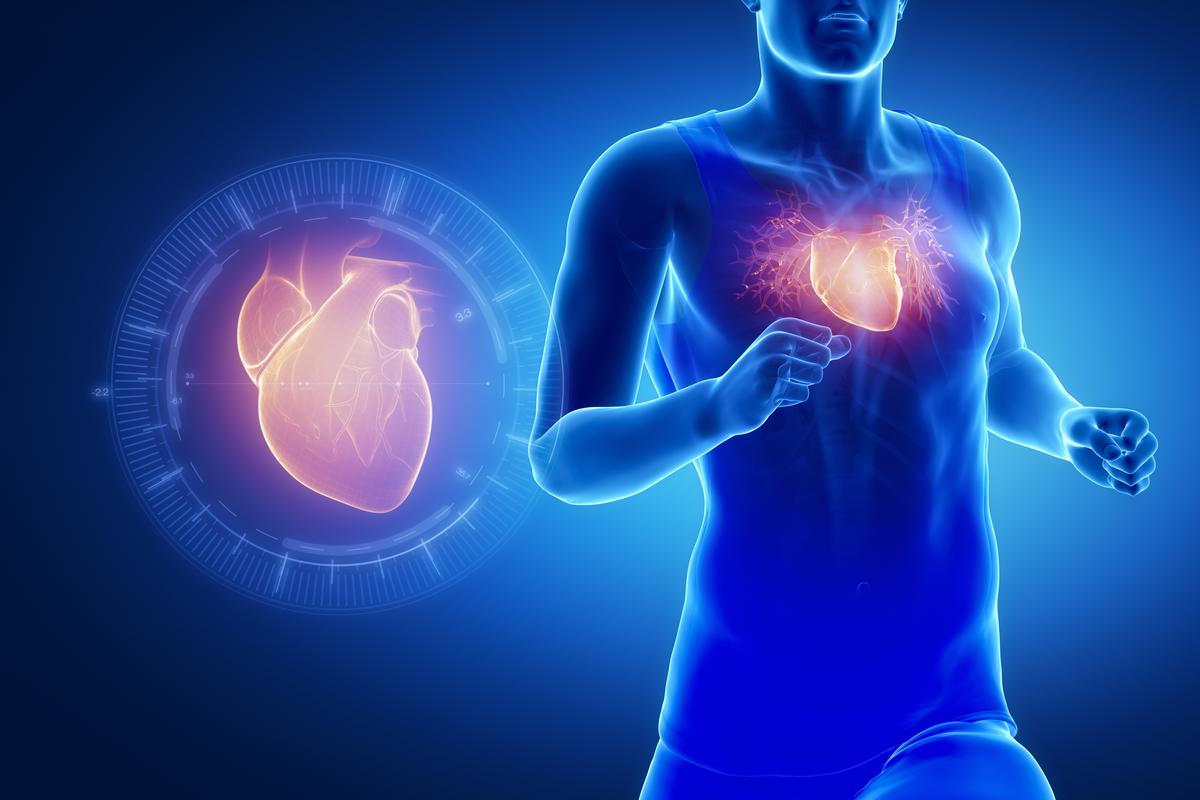Intensive exercise is even linked to increased coronary arteriosclerosis in comparison to moderate exercise. There is no doubt that exercise is healthy. Power and especially endurance training provide many health benefits. The World Health Organisation (WHO) recommends for all adults 150 to 300 minutes moderate or 75 to 150 minutes of intense physical exercise per week. Buto do these health benefits continue to increase in the case of endurance sports? Or are there in fact adverse cardiovascular effects in case of intense endurance sports? These are questions sports cardiology is looking at.
Master@Heart
In order to find a scientific answer to these questions, cardiologists and radiologists of the Jessa Ziekenhuis, UZ Antwerpen and UZ Leuven launched the Master@Heart study in 2018, with patron Sven Nys. They wanted to map the relationship between endurance sports and arteriosclerosis of the heart. In addition, the researchers wanted to examine the relationship between endurance sports, atrial fibrillation and scarring of the heart muscle.
The Master@Heart study compared 191 lifelong endurance athletes, who trained on average more than 10 hours a week since early childhood, compared with 191 late endurance athletes (started after the age of 30), and 176 active healthy volunteers with no known risk factors for cardiovascular disease. Suprisingle, this research showed that lifelong endurance athletes were confronted with more calcification of the coronary arteries with more severe stenosis.
For athletes the most important thing to remember is that you don't have exercise in the extreme for better health. Prof. dr. Rik Willems
Prof. dr. Rik Willems
Prof. dr. Rik Willems, specialist in cardiovascular diseases at UZ Leuven: “This study shows that, if we join forces in this little country of ours, we can deliver high-level science. This first results are the beginning of what will definitely be a fruitful collaboration between UZ Leuven, UZ Antwerpen and the Jessa hospital in Hasselt. For athletes, the most important thing to remember is that extreme exercise is not necessary for a better health. If you want to do this, it has to be your passion, and you need to proper medical supervision, especially at an advanced age.”
Prof. dr. Guido Claessen, cardiologist at the Hartcentrum Hasselt (Jessa): “These results are unexpected and as yet unexplained. They were, however, very consistently present. To what extent this is worrisome for the lifespan of the athlete will need further investigation. As yet, there are no studies that show that athletes also have a higher risk of myocardial infarction, which presents itself when an artery when the blood vessel irrigating the heart muscle is completely occluded.”
Regular exercise remains a must and is healthy!
This study is however no reason to exercise less, quite the contrary. Athletes have a proven better life expectancy than the general population. Moreover, coronary artery damage in athletes generally remains limited and significantly less than if one did not exercise and lived an unhealthy lifestyle (bad diet, smoking causing high blood pressure, increased cholesterol values, diabetes and overweight).
This study simultaneously shows that the benefits of regular exercise is already obtained by exercising actively for 150 minutes a week. Running a marathon does not make you more healthy. The study even suggests that the health effects may be somewhat tempered by the unwanted coronary arteriosclerosis with very intensive exercise activity.
